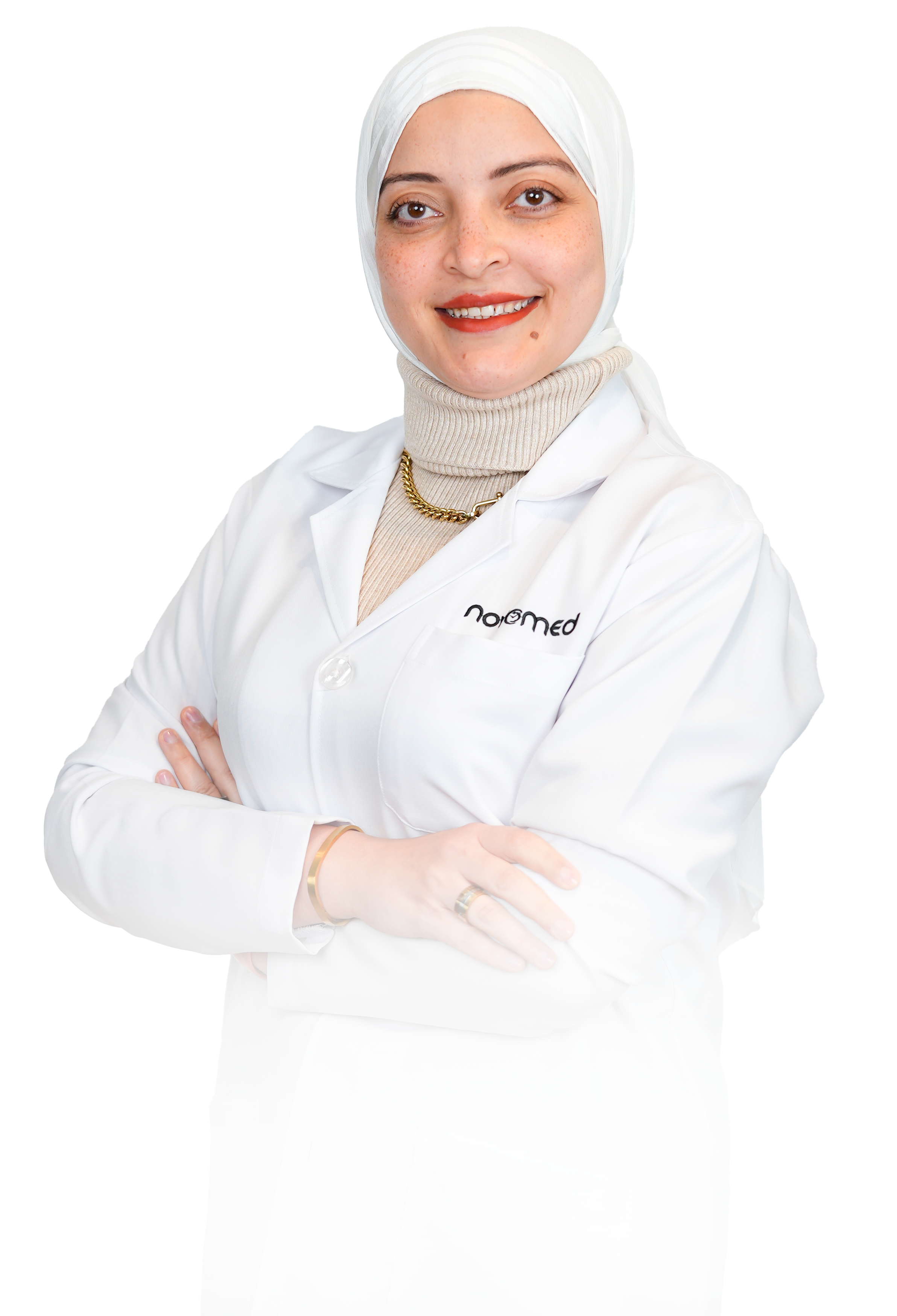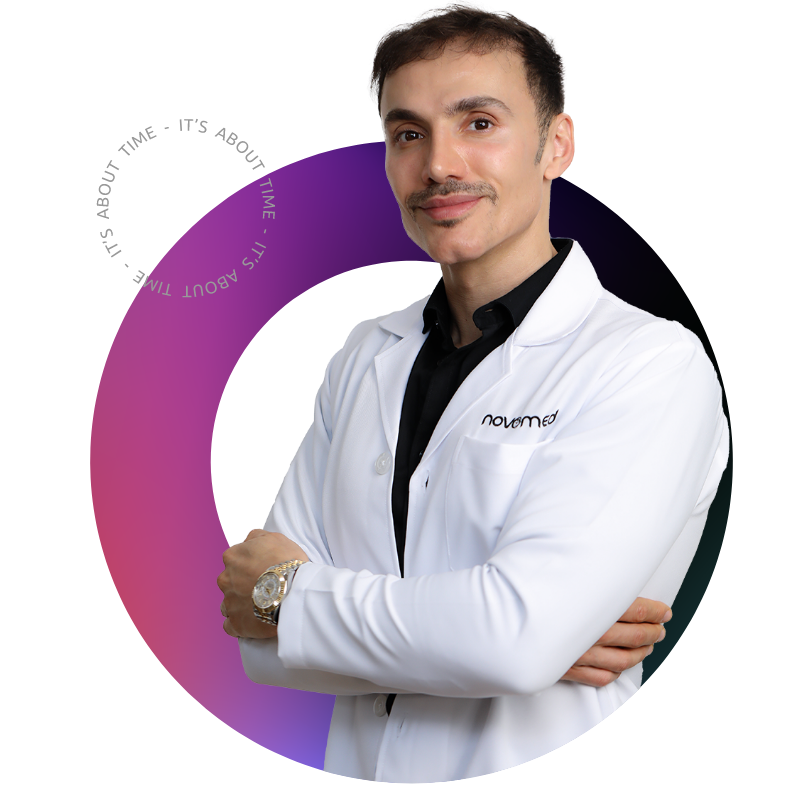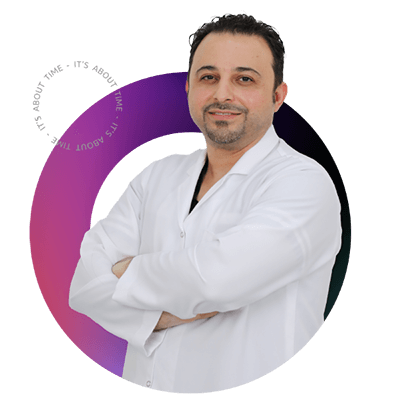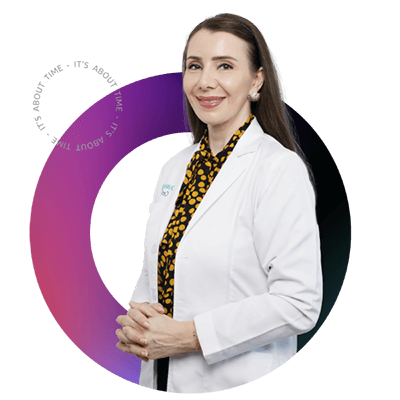A skin rash is characterized by a noticeable alteration in the skin’s texture, color, or overall appearance, distinguishing it from the surrounding body areas. Rashes can manifest in various forms, including redness, bumps, blisters, welts, dryness, scaling, or peeling and may cause discomfort and pain. They may be localized to a specific area or spread over a larger body area.
At Novomed, our commitment to excellence in dermatological care extends to the comprehensive treatment of skin rashes. Our team of expert dermatologists in Dubai is renowned for their expertise and effective medical solutions.
Who is most likely to get a skin rash?
Skin rashes can affect individuals of all ages, from infants to seniors. Infants, for instance, are susceptible to conditions like diaper rash and cradle cap. In the case of children, they are prone to atopic dermatitis. They can contract viruses that lead to rashes, such as the fifth disease. As people age, older kids and adults may develop contact dermatitis as their skin gradually becomes more sensitive to allergens and irritants.
What are the common types of skin rash?
- Contact dermatitis: Contact dermatitis arises when your body reacts adversely to a particular substance. Many people are allergic to fragrances, preservatives, nickel, latex, and poison ivy. Additionally, common irritants encompass soaps, detergents, chemicals, and household cleaning products.
- Eczema: Also known as atopic dermatitis, is a persistent skin condition characterized by dry and inflamed skin. Typically emerging during childhood, it tends to lessen as the individual matures and may be influenced by both genetic predisposition and environmental factors.
- Psoriasis: A chronic autoimmune disorder manifests as the rapid accumulation of skin cells, resulting in the development of red, scaly patches on various body parts such as the elbows, knees, lower back, scalp, and genital region. The condition may be instigated by genetic predisposition and environmental influences.
- Hives: Hives, also known as urticaria, are characterized by raised, itchy welts on the skin. They are often a result of allergies, stress, or underlying medical conditions. They can occur when you experience an allergic reaction triggered by airborne allergens or insect bites/stings.
- Allergic reactions: Skin rashes are a prevalent symptom in numerous viral conditions, including but not limited to chickenpox, measles, and molluscum contagiosum.
What are the causes of a skin rash?
Skin rashes can occur for various reasons, and they are often the body’s way of signaling that something is not quite right. Here are some common causes of skin rashes:
- Allergies: Allergic reactions to substances like certain foods, medications, pollen, or insect stings can lead to skin rashes. Allergies can manifest as hives (urticaria) or contact dermatitis.
- Irritants: Contact with irritating substances such as harsh soaps, detergents, chemicals, or plants like poison ivy can cause rashes. This is known as contact dermatitis.
- Infections: Bacterial, viral, and fungal infections can result in skin rashes. Examples include impetigo, herpes simplex, ringworm, and shingles.
- Autoimmune conditions: Autoimmune disorders like lupus, psoriasis or rheumatoid arthritis can lead to various skin manifestations, including rashes.
- Stress: Existing skin conditions can be aggravated by stress or even give rise to new rashes, including stress-induced hives or flare-ups of eczema.
- Heat and sweat: Excessive sweating and heat can lead to conditions like heat rash (prickly heat) or sweat-induced folliculitis.
- Medications: Some medications, such as antibiotics, antifungals, or antiseizure drugs, can cause adverse skin reactions and rashes as side effects.
- Insect bites and stings: Bites and stings from insects like mosquitoes, fleas, ticks, and bedbugs can cause localized skin reactions, often accompanied by itching and redness.
- Food sensitivities: Certain foods can trigger skin reactions in individuals with food sensitivities or intolerances.
- Environmental factors: Exposure to environmental factors like extreme cold, sunburn or dry air can lead to skin dryness and irritation.
- Underlying medical conditions: Skin rashes can be a symptom of underlying medical conditions, including autoimmune diseases, diabetes, or liver and kidney disorders.
- Chemical sensitivities: Some individuals may be sensitive to specific chemicals or ingredients in cosmetics, lotions, or skincare products, leading to contact dermatitis.
- Genetics: In some cases, genetic factors can predispose individuals to certain skin conditions and rashes, such as Eczema (Atopic Dermatitis), characterized by dry, itchy, and inflamed skin.
What are the common symptoms of a skin rash?
The symptoms of a skin rash can differ based on its type and underlying cause. A skin rash might present as dry, blistering, blotchy, burning, stinging, flaky, scaling, hive-like with welts, inflamed, swollen, itchy, painful, or displaying redness.
How is a skin rash diagnosed?
At Novomed, the diagnosis of a skin rash typically involves a thorough and personalized approach by dermatologists and healthcare professionals. The process may include:
- Biopsy: Your healthcare provider can perform a biopsy, extracting a small sample of your skin or tissue to examine for viruses or bacteria.
- Allergy tests: Skin prick (scratch) and patch tests help identify allergens. Prick testing aids in diagnosing urticaria, while patch testing is beneficial for detecting allergic contact dermatitis. During these tests, your dermatologist exposes your skin to small amounts of potential allergens, closely monitoring for any reactions. The presence of an allergy is indicated if the skin exhibits redness, swelling, or develops a rash.
- Blood testing: Some skin conditions can arise from antibodies circulating in your bloodstream, which can be detected through blood tests. Blood tests are essential for a comprehensive assessment in cases where rashes are linked to systemic illnesses affecting other organ systems.
- Imaging: In rare cases where the rash is linked to an underlying issue involving deeper tissues or organs, imaging studies like X-rays, ultrasound, or MRI may be ordered to provide a more comprehensive assessment.
How is a skin rash treated?
Novomed offers a range of treatment options tailored to your specific skin rash:
- Topical treatments: Corticosteroids, ointments, and creams can effectively manage inflammation and itching, providing immediate relief.
- Antihistamines: For allergy-related rashes, antihistamines can reduce itching and redness. Novomed offers various antihistamine options for optimal results.
- Moisturizers: Proper hydration is essential for soothing irritated skin. Novomed’s dermatologists can recommend the right moisturizer for your skin type.
- Prescription medications: Severe or chronic rashes may require prescription medications, including immunosuppressants and systemic treatments to control the condition.
- Home remedies: Novomed advocates a holistic approach, including natural remedies like aloe vera and cold compresses for skin relief.
- Phototherapy: Our advanced phototherapy facilities can effectively treat conditions like psoriasis by exposing the skin to controlled UVB light.
- Lifestyle changes: Stress management, sun protection, and avoiding known triggers are vital components of our holistic approach to skin rash treatment.
What complications can a skin rash cause?
Though bothersome and unsightly, skin rashes typically respond well to treatment and seldom lead to severe complications. However, there are potential concerns to be aware of:
- Anaphylaxis: In some cases, a severe allergic reaction can manifest as a skin rash and escalate into a life-threatening condition known as anaphylaxis. Anaphylaxis can result in extreme swelling (angioedema) that may obstruct air passages. Individuals experiencing anaphylaxis require immediate epinephrine (EpiPen®) administration to counteract this severe allergic response. If you have ever noticed swelling in your throat or mouth when developing a rash, consult your healthcare provider to determine whether carrying an EpiPen® is advisable.
- Infection: Constantly scratching an itchy rash can break the skin’s barrier, providing an entry point for bacteria. This increases the risk of developing a bacterial skin infection, underscoring the importance of avoiding excessive scratching when dealing with skin rashes.
Book your appointment at Novomed today!
If you are dealing with a bothersome skin rash or have concerns about your skin’s health, Novomed’s expert dermatologists in Dubai are here to provide the highest level of care. We are dedicated to helping you achieve healthy, radiant skin and regain your confidence. Your journey to rash-free skin begins with a consultation at Novomed, where expertise meets excellence in dermatological care.
Contact Novomed today to schedule your consultation by calling 8006686, filling out the booking form or clicking the chat icon at the bottom of the screen.































